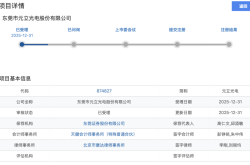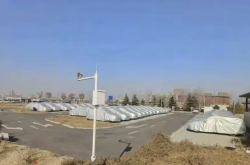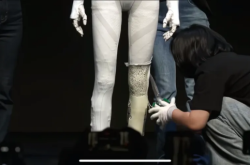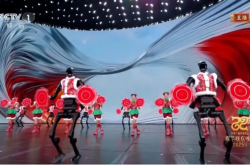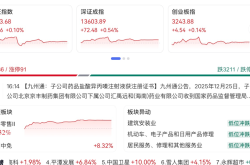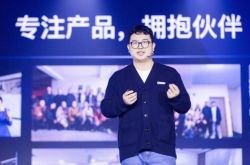Unmanned driving is not a desolate place
![]() 08/23 2024
08/23 2024
![]() 577
577
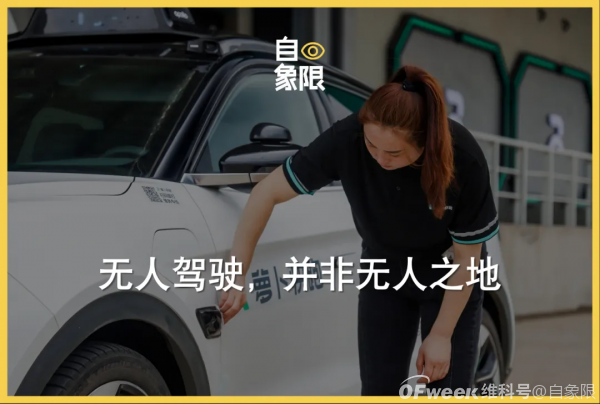
Photo | Photo by Luobo Quick Run
© Self-quadrant Original
Have experienced drivers been 'robbed' again?
As Wuhan's unmanned Robotaxi gained popularity on various social media platforms, the profession of autonomous driving safety officers has moved from behind the scenes to the forefront. Recently, job posting platform information also indicates a surge in recruitment demand for Luobo Quick Run autonomous driving safety officers: Both male and female candidates are welcome, and job seekers with experience in ride-hailing, taxi, bus, or other passenger/freight transportation are given priority in hiring.
According to the person in charge of a human resources company in Shanghai responsible for recruiting Luobo Quick Run autonomous driving safety officers, they receive an average of 600-700 resumes per day, further emphasizing the priority given to experienced drivers.
It is evident that the emergence of Robotaxi has not "replaced" anyone but instead created new positions and opportunities.
Following the trail, as a representative of modern transportation, the world's first subway appeared in London in 1863, redefining urban transportation since then. Just as all new industries bring new jobs, subways have also spawned many new positions, such as urban rail transit maintenance workers, station attendants, dispatchers, safety managers, and more.
Now, over 160 years since the first subway was introduced, urban transportation is undergoing a new revolution guided by artificial intelligence technology.
In July of this year, provinces and cities such as Shanghai and Hunan successively introduced policies to expand the operation scope of autonomous taxi (Robotaxi) services. Robotaxis, which were previously concentrated in suburban areas, have gradually expanded into urban core areas, becoming a new travel option for more people. Official data shows that as of April this year, Luobo Quick Run has accumulated over 6 million service orders.
It is clear that following the epoch-making transformation of urban transportation by subways, Robotaxi is becoming the new direction of urban transportation evolution. So, what new professions is Robotaxi creating in this new round of transformation?
Being the "doctor" of cars to ensure human safety
Among the many new professionals, Liu Jianhua, a 1998-born boy from Jiangxi, is particularly perceptive.
"My main job is to conduct system upgrades, deployments, optimizations, and troubleshooting for Luobo Quick Run vehicles. I'm also responsible for the initial calibration of sensors on autonomous vehicles."
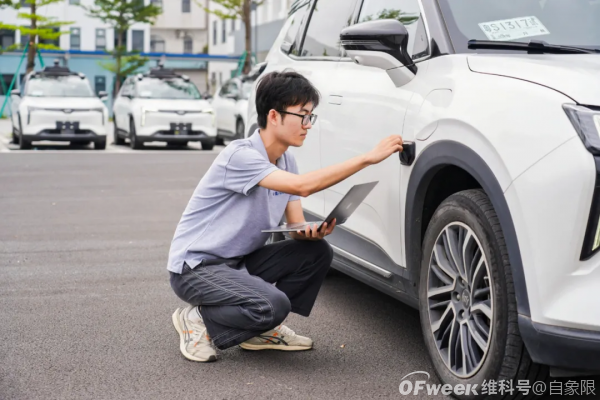
▲ Image provided by the interviewee
Having joined the autonomous driving industry after graduation, he is now an autonomous driving operation and maintenance engineer for Luobo Quick Run.
"Every morning when I arrive at the company, I first check the work orders to see what tasks I have received for the day. For example, if I receive a system upgrade work order, I need to find the corresponding vehicle and upgrade its system to the required version," Liu Jianhua confidently explains his daily work.
"Sometimes I receive other work orders, such as when a test vehicle malfunctions during operation, requiring us to troubleshoot and solve the issue. Occasionally, we also need to perform calibration tasks."",According to Liu Jianhua's description, as an autonomous driving operation and maintenance engineer for Luobo Quick Run, his work primarily consists of four parts: system upgrades, sensor calibration, troubleshooting, and vehicle quality inspection and closed-loop testing."System upgrades are similar to installing a system on a computer, and Luobo Quick Run's autonomous driving systems are typically updated weekly. Sensor calibration involves calibrating sensors, including lidar and cameras, on autonomous vehicles to ensure their parameters meet standards, which affects the accuracy and reliability of autonomous driving data.
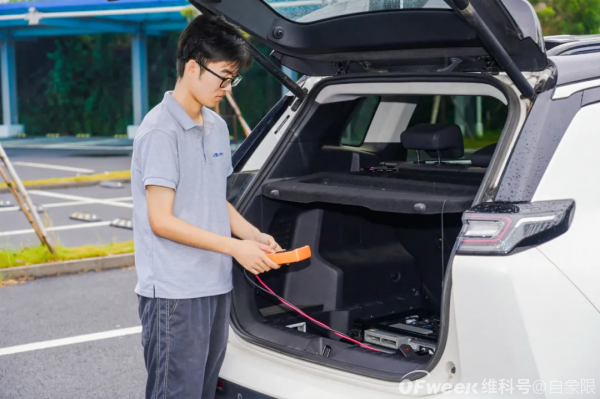
▲ Image provided by the interviewee
Troubleshooting addresses issues that arise during daily operation. Vehicle quality inspection and closed-loop testing are even more crucial, as Liu Jianhua and his team need to evaluate the capabilities of autonomous vehicles, similar to a graduation exam. Only vehicles that pass the test are ultimately released into the market to serve passengers.
It can be said that Liu Jianhua's work is a crucial step in ensuring passenger safety in autonomous driving.
Liu Jianhua says he loves new things, and if a new thing has good development prospects, he will devote himself wholeheartedly to it. Autonomous driving is clearly a novelty, so in 2021, fresh out of college, Liu Jianhua plunged headfirst into this industry.
At that time, if Liu Jianhua was somewhat impulsive, after three years of hard work in the autonomous driving industry, he now has his own criteria for judging the "prospects" of autonomous driving.
"I think if people recognize and are willing to try something, it has development prospects," Liu Jianhua says. "At first, people might worry about the safety of autonomous driving and hesitate to try it since they haven't experienced it. But now, you can see in places like Wuhan and Shenzhen that unmanned vehicles are increasingly accepted by citizens."","Sometimes, when I see a Luobo Quick Run vehicle carrying passengers safely on the road, I feel proud because I know I played a small part in it. So in the future, I will definitely continue to delve deeper into autonomous driving," Liu Jianhua says.
From ride-hailing driver to Robotaxi 'administrator'
In addition to dedicated 'doctors,' Robotaxi also has its own 'butlers,' who have a unique name: ground safety officers.
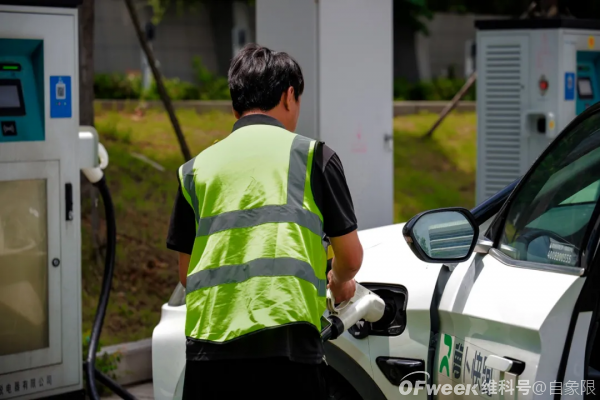
▲ Image provided by the interviewee
"If it's an early shift, I need to prepare the vehicles assigned for the day's operations, including checking documents, cleaning, and system readiness, before sending them out with colleagues. For the evening shift, I'm responsible for vehicle inspections, including checking for any exterior damage or new scratches, then washing and charging the vehicles," Lu Weibing describes his work.
"Apart from dispatching and retrieving vehicles, we also need to respond to issues that arise during daily operations. If an issue cannot be resolved on-site, we need to bring the vehicle back for repairs," Lu Weibing says.
Ground safety officers act as butlers, ensuring the smooth and safe operation of autonomous vehicles for passengers.
However, before becoming a ground safety officer, Lu Weibing was actually a ride-hailing driver.
01:01:53
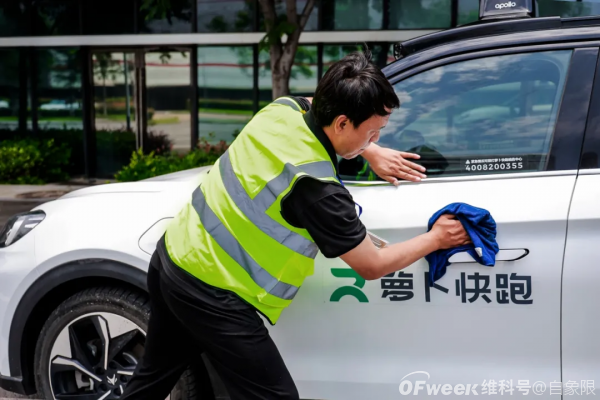
▲ Image provided by the interviewee
In 2021, due to the pandemic's impact, Lu Weibing's income began to decline. "Before the pandemic, my daily earnings were usually over 500 yuan, sometimes even over 700. But after the pandemic, I rarely earned more than 500 yuan, mostly around 300-400 yuan, and sometimes as low as 100-200 yuan," he recalls.
Under the sustained pressure, Lu Weibing bid farewell to his four-year career as a ride-hailing driver and joined Luobo Quick Run. Comparing his new job to his previous one, Lu Weibing has many reflections: "It's definitely more stable than ride-hailing, with basic guarantees, which gives me a greater sense of responsibility."","Previously, ride-hailing companies also assessed drivers, with the highest rating being A+, requiring drivers to work at least 12 hours a day. I was usually rated B or B+, but I still had to work ten hours a day. Sitting in the car for long periods not only affects my health but also increases the risk of accidents," Lu Weibing mentions.
Moreover, Lu Weibing feels that his temper has improved since changing jobs. "Driving for ride-hailing services was time-consuming and encountered all kinds of people, which gradually wore down my patience and affected my family life. Now, with fewer conflicts at work, I'm in a better state both at work and at home," he says.
Of course, the biggest change is in responsibility. Today, Lu Weibing is the leader of Luobo Quick Run's ground safety team, leading a team of over ten members.
"My responsibilities have grown, and I have to handle more things, such as coordinating solutions for emergencies like lost items or accidents. It's not just about driving well; it's also about being socially responsible," Lu Weibing says.
Pilots blazing new trails with every mile
Just as every scenic travel route requires someone to explore it first, every road that Robotaxi operates on also needs to be tested by someone.
Li Cheng, who joined Luobo Quick Run in 2022, undertakes such a task. "My daily job is to drive vehicles on roads that have never been driven on before, collecting data and testing scenarios until they are ready for commercialization," he says.
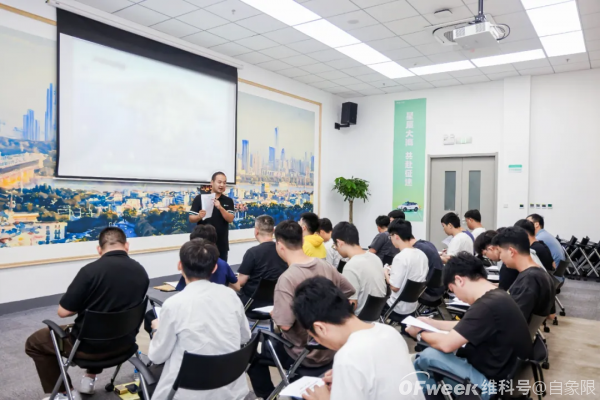
▲ Image provided by the interviewee
"From January 2023 to now, we have gradually covered most roads in Wuhan," Li Cheng says proudly, describing his accomplishments.
However, like all pioneering professions, Li Cheng's job also carries risks.
"We are at the forefront," Li Cheng describes. "Our task is to test and report issues. Only after we report all issues and the R&D team resolves them, can the system be considered mature for commercial operation," he says.
Initially, Li Cheng's family was not supportive of his job.
"On one hand, they are older and don't understand autonomous driving, thinking it's just hype. On the other hand, they worry about safety, with children and parents at home, and fear that something might happen to me outside," Li Cheng says.
However, over the past two years, as autonomous driving technology has gradually become more prevalent, Li Cheng's family has come to accept his "new profession."
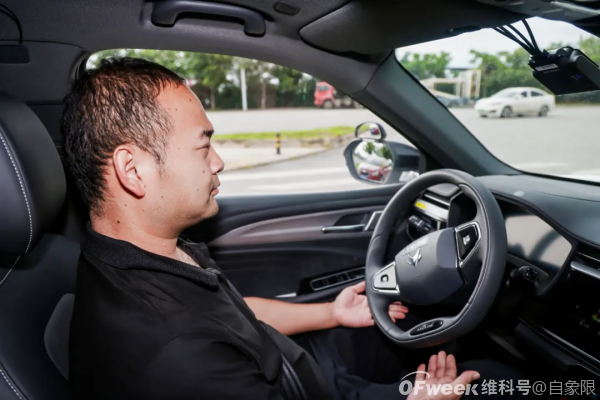
▲ Image provided by the interviewee
"You'll notice that its thinking is getting closer to humans. For example, if there's a vehicle breakdown in the middle of the road, our car will detour in advance. It will also detour around obstacles, and there are almost no hard brakes anymore," Li Cheng proudly says, referring to the advancements in autonomous driving technology over the past two years. "We've watched the capabilities of autonomous driving grow little by little through testing."","Nowadays, my family members ride in our cars for 20 out of 30 days in a month. My wife takes our car to and from work every day, sometimes up to five or six times a day," Li Cheng says, delighted by his family's changing perception of autonomous driving. "Before, they wouldn't dare ride in it, but now they hardly drive their own car anymore. They trust autonomous driving just as much as they trust me," he adds.
Today, Li Cheng has progressed from a regular road test safety officer to a pilot training instructor.
"I train new safety officers, and I've trained over 500 of them so far. Now, 90% of the people in Wuhan go through our comprehensive training program, from interviews to graduation," Li Cheng says happily.
When asked why he chose this profession, Li Cheng doesn't have a definitive answer. But he says, "I come from a driving school background. When I took my driver's license test, I sat in the passenger seat. I used to teach people how to drive, and now I teach autonomous vehicles how to drive. This job suits me well."
Nowadays, everyone says Luobo Quick Run is becoming fully unmanned. I tell them that we were the ones who paid the price when unmanned driving first started, and we feel proud of it," Li Cheng says.
Conclusion
Looking back, from Liu Jianhua to Lu Weibing to Li Cheng, autonomous driving is creating entirely new professions, but these professions are also rooted in traditional work.
This has led to a diverse group of people entering the autonomous driving industry, including automotive technicians, ride-hailing drivers, and technology engineers from tech companies.
Many people might think that autonomous driving is a high-tech industry that is out of reach for ordinary people. However, in reality, the barriers to entry into the autonomous driving industry are not high, and everyone can find a suitable position for themselves.
"I think the key to choosing a job is not the stability of the industry but whether one's learning ability can adapt to the changes of the times," Liu Jianhua says.
Technological development has never been possible without the efforts of top researchers, but equally important is the support of ordinary people. As Li Cheng says, "We have so many colleagues, and I feel proud that even small figures like us are indispensable."
* The images in this article are sourced from the internet

